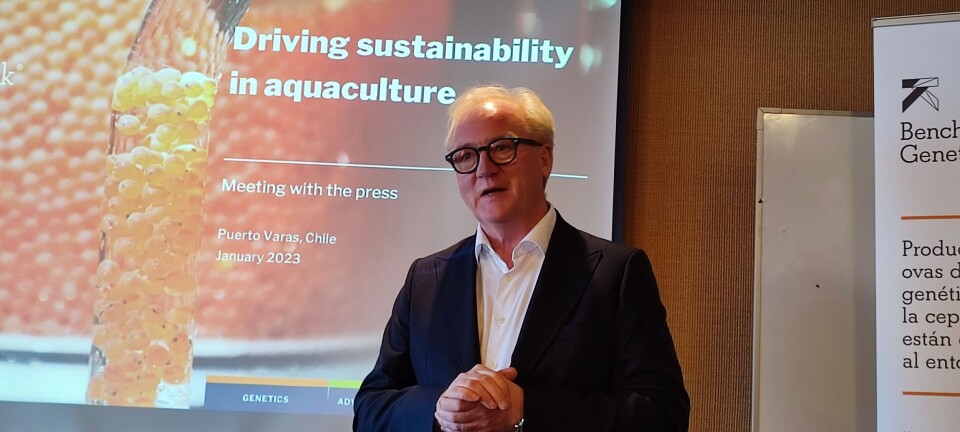
Ready to set a new Benchmark
The aquaculture biotech company reports a challenging fourth quarter, but after the sale of its genetics division it has an organisation that its executives believe is well-positioned for the future.
Benchmark's fiscal year starts in October and it therefore ended its fiscal year, and also the fourth quarter, on September 30.
The company emphasises that the financial figures for Q4 are based on unaudited accounts.
The genetics business, which was sold after the end of the period in a deal worth at least £230 million, is treated as "held for sale" and classed as discontinued in the Q4 report and in the annual report. However, the results for genetics for FY 2024 are included in the financial figures to enable shareholders to evaluate the performance and development of the group as a whole before the sale took place.
"The fiscal year 2024 was transformative for the group. We managed to deliver a robust performance despite challenging market conditions, while also realising significant shareholder value as a result of the successful development of our genetics business over the years," said chief executive Trond Williksen.
He believes the sale of the genetics division creates an opportunity to simplify the group's structure, which positions it to realise the potential in the business areas of advanced nutrition and health, while also reducing costs and debt.
"This will also enable a return of capital to the shareholders. After the sale, Benchmark will become a lean, profitable organisation with a solid balance sheet, focused on realising the significant value and potential in our continued operations, where we have leading market positions, a proven ability to innovate, and significant growth potential," said Williksen.
Financial highlights for Q4
Total revenues (from continued and discontinued operations): £36.8 million, 1% higher than the previous year (+7% at constant exchange rates (CER)).
- Advanced Nutrition: The company reports good figures despite challenging conditions in the global shrimp market; revenues 9% higher than the previous year (+17% CER).
- Health: Revenues 66% lower than Q4 FY23 due to a pause in activities related to sea lice medicine Ectosan and related filtration system CleanTreat following the decommissioning of two CleanTreat systems in transition to a lower capital intensity model.
- Genetics (discontinued): Revenues 2% higher than Q4 FY23 (+7% CER), driven by early harvest of the spring generation 2023, which offset lower volumes of sold salmon eggs.
Revenues from continued operations: £19.6 million, 1% lower than the previous year (+6% CER).
Adjusted EBITDA Q4 (continued and discontinued operations): £6.9 million (Q423: £8.9 million). This was affected by lower gross profit in advanced nutrition and, to some extent in genetics, partially offset by reduced EBITDA loss in health and lower operating costs.
Benchmark made a pre-tax loss of -£25.1 million for Q4, and -£45.9m for FY24.
Current trading and outlook
Advanced nutrition
- Weak start to the year with unchanged conditions in the shrimp market.
- Expected improvement throughout the year and improvement in gross profit, supported by higher quality Artemia harvesting.
The company writes that measures in recent years to strengthen commercial work, expand the product portfolio, and increase operational efficiency mitigate the effect of market cyclicality and, according to Benchmark, position the business for growth and increased profitability in the short and medium term.
Health
- The health segment had a good start to the year. Benchmark sees Salmosan as well-positioned and an important tool in managing sea lice.
"With a reduced cost base, health is expected to deliver stable profitability. At the same time, we will continue to collaborate with customers to develop an optimal model for Ectosan and CleanTreat, based on customer-owned infrastructure that represents future potential," said the company.
At the group level, it is stated that there is a continued focus on simplifying and streamlining the group structure, which is expected to provide significant cost savings.
"The work will start after the completion of the sale of genetics, taking into account the company's obligations under the transition agreement, which is expected to last three to six months."













































































